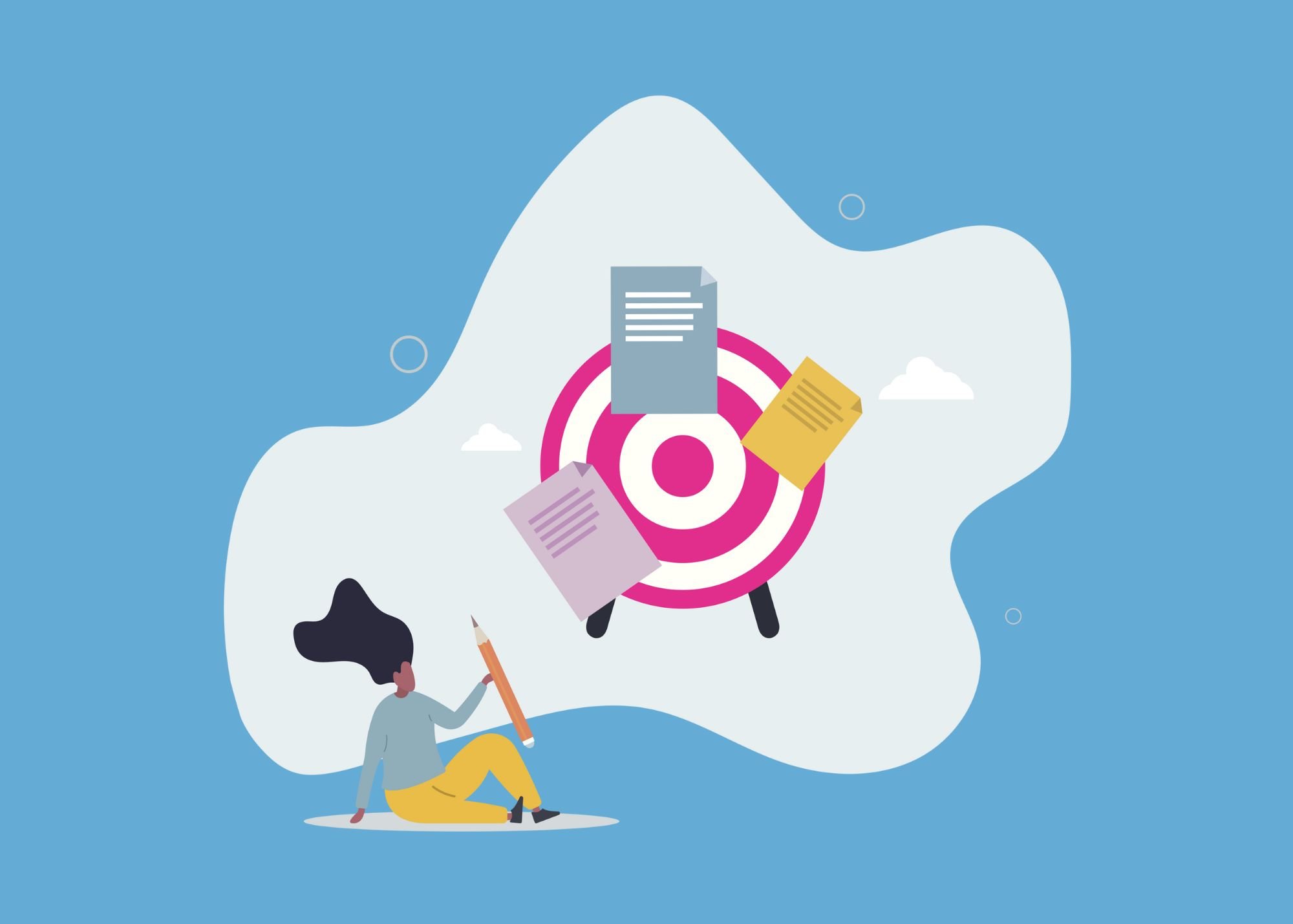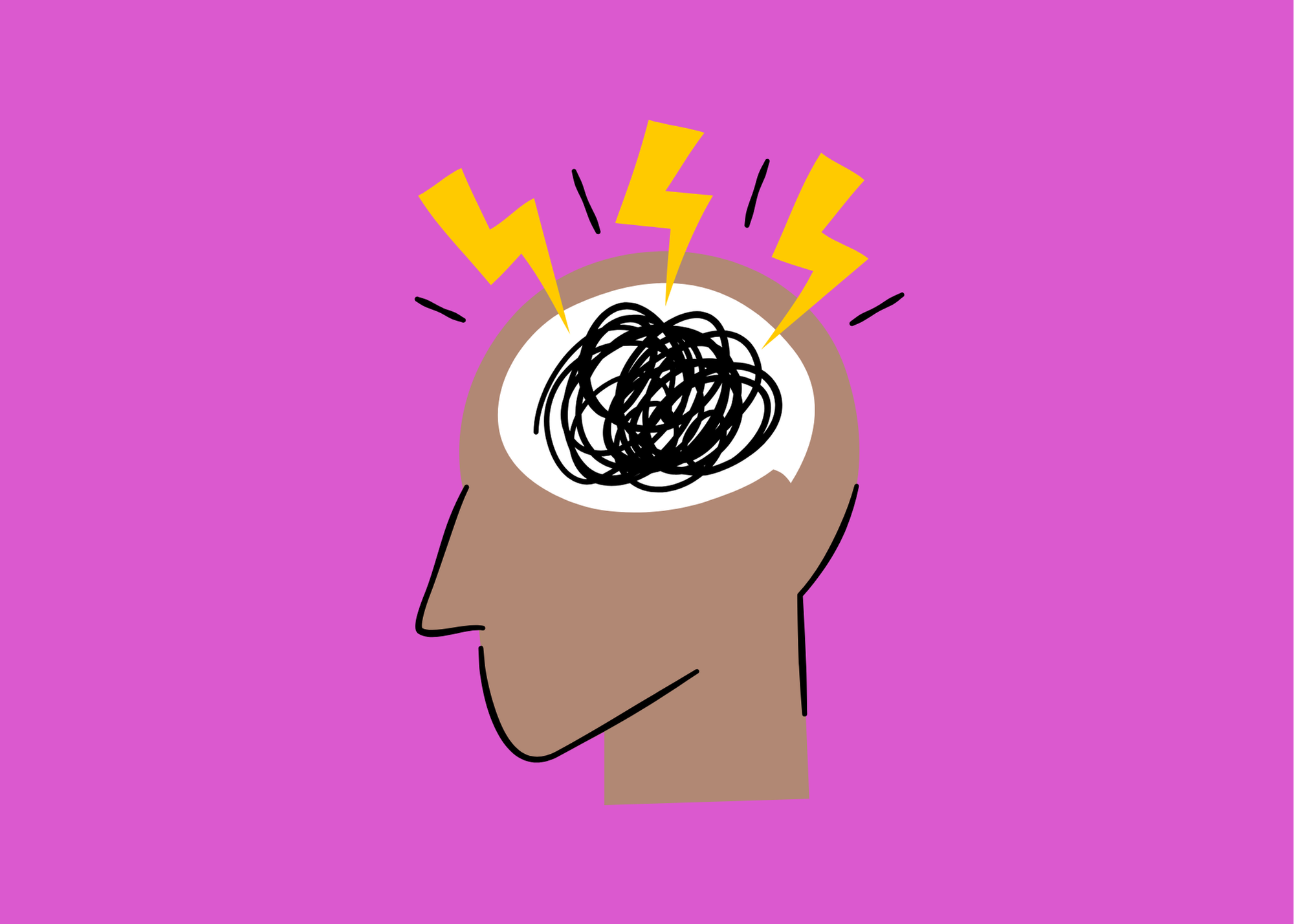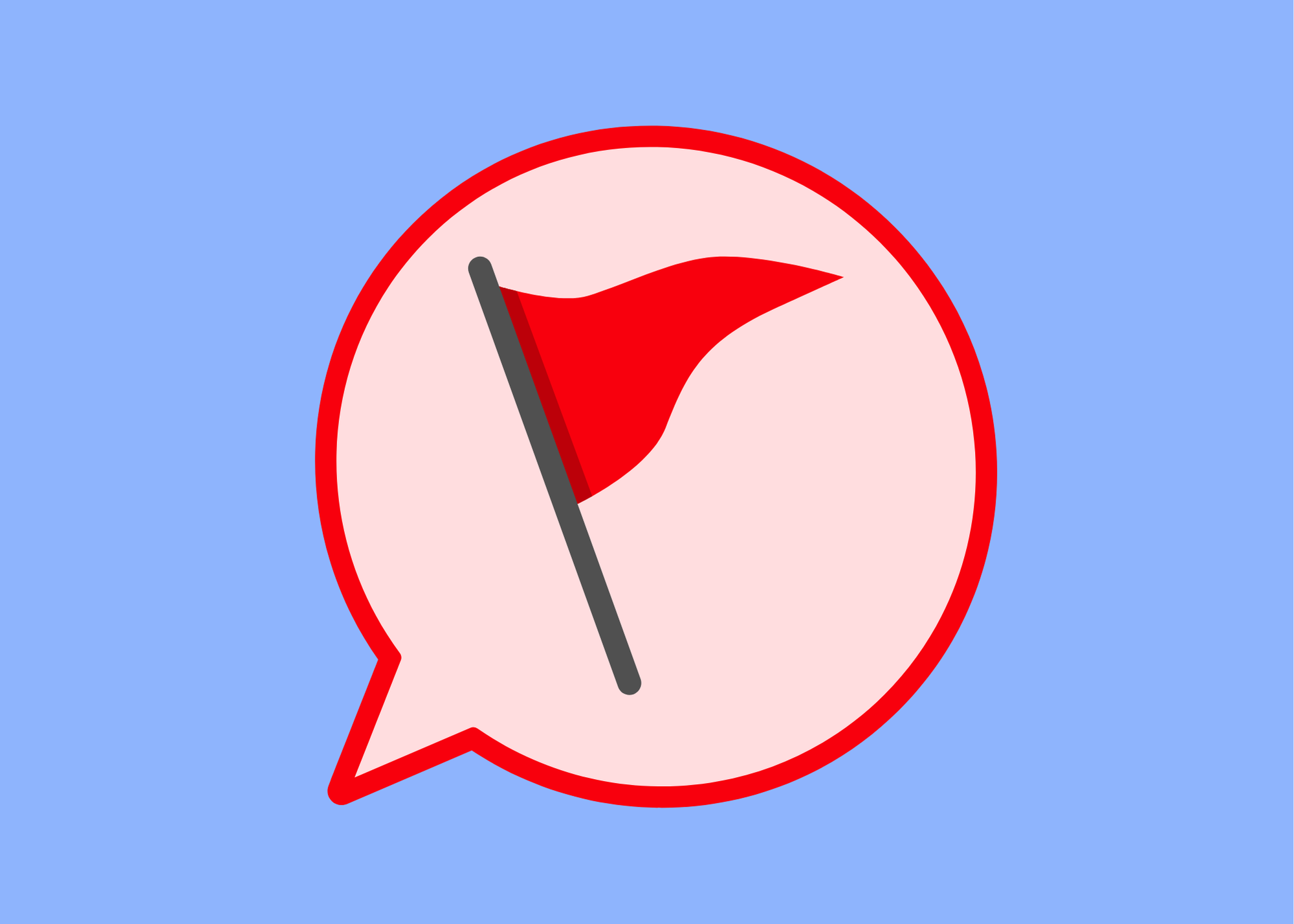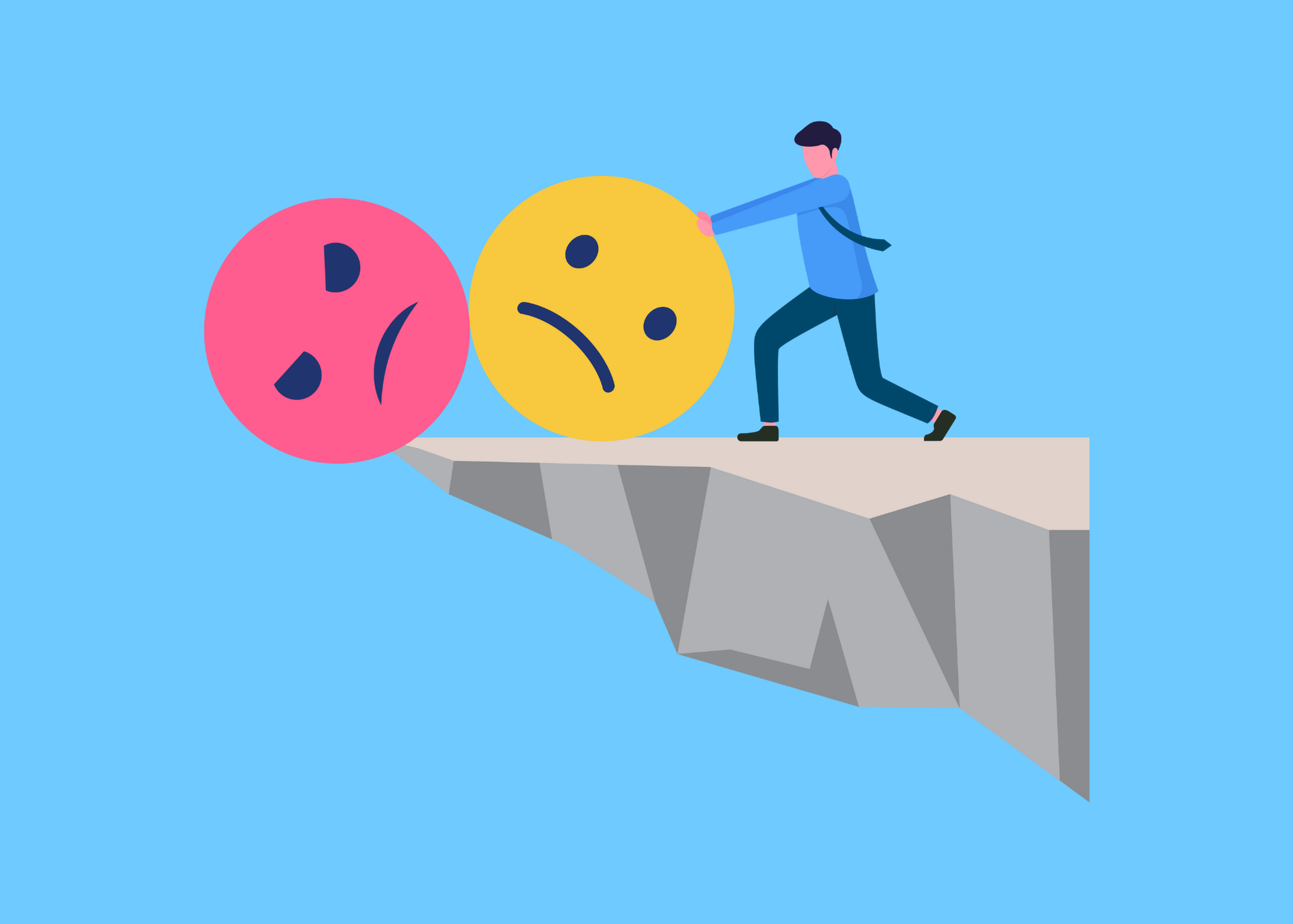How to Dial It Back When You're a Stressed Out Overachiever (Without Tanking Your Career)
Dialing back doesn’t mean giving up—it means being strategic for long term success.
Overachievers, let’s be real. You don’t half-ass anything. You push, optimize, and outwork everyone in the room. And while that got you where you are today, it’s also why you’re exhausted, mentally fried, and possibly running on more caffeine than actual sleep.
But here’s the thing: dialing it back doesn’t mean dialing down your ambition. In fact, pulling back strategically is exactly what keeps high performers at the top of their game. The problem? You don’t believe that—yet. Because everything in your brain is screaming, “If I slow down, I’ll fall behind.”
You won’t. But you will burn out if you keep up this pace. Chronic stress wrecks your decision-making, your body, and your long-term success. And if you think ignoring it makes you tough, guess again. The smartest, most successful people know when to shift gears before their health (or career) forces them to.
Let’s get into the why and, more importantly, the how—without sabotaging everything you’ve built.
Why Dialing It Back Is a Power Move (Not a Weakness)
1. Chronic Stress Tanks Your Performance
Stress isn’t the enemy—until it is. A little stress? Great for motivation. Chronic, unrelenting stress? That’s when your brain starts glitching. Research shows that excessive stress impairs cognitive function, creativity, and problem-solving—pretty much everything that makes you valuable at work.
Think about it: Have you ever made a game-changing decision after three hours of sleep and back-to-back Zoom calls? Doubt it.
2. Burnout Destroys Your Long-Term Success
Let’s talk sustainability. Overachievers love to sprint, but careers (and life) are marathons. Burnout doesn’t just mean feeling tired; it leads to cynicism, disengagement, and eventually, complete career detachment. Translation? The thing you’re killing yourself for will eventually feel meaningless. And that’s when things unravel.
3. Health Is Your Ultimate Competitive Advantage
If you’re constantly exhausted, your body is in survival mode. Your nervous system is fried, your immune system is shot, and your ability to recover—physically and mentally—is compromised. Over time, this leads to higher risks of cardiovascular disease, anxiety, depression, and even cognitive decline.
You want an edge? Protect your health. No promotion, client deal, or industry award is worth wrecking the only body and brain you have.
The Tactical Guide to Dialing It Back (Without Losing Your Edge)
So, you’re convinced that you probably need to ease up. But how do you actually do that without feeling like you’re slacking?
1. Recalibrate Your Routine (Because Chaos Isn’t a Flex)
Your nervous system craves stability. High achievers love the idea of “thriving in chaos,” but that’s just adrenaline talking. A predictable routine helps regulate stress hormones, keeps you mentally sharp, and prevents decision fatigue.
Here’s what to do:
Anchor your mornings and evenings. Set a non-negotiable start and stop time for work. Protect at least 30–60 minutes in the morning and before bed for yourself—not emails, not Slack, not LinkedIn scrolling.
Schedule real breaks. No, scrolling Twitter between meetings doesn’t count. Walk, eat, breathe. Build actual decompression into your day.
Guard your sleep like your best investment. Because it is. Lack of sleep tanks productivity, memory, and emotional regulation. You think you’re powering through, but you’re actually running at 50% capacity.
2. Reframe Rest as a Strategy (Not a Setback)
You wouldn’t train for a marathon by sprinting every day until you collapse—so why do you treat your work this way? Strategic recovery isn’t lazy; it’s what keeps elite performers from crashing.
Try this:
Build in recovery cycles. Think of your career like an athlete’s training program: periods of high effort must be balanced with periods of recovery.
Make “productive rest” a thing. Active recovery isn’t just lying on the couch (though, sometimes, it should be). Hobbies, creative outlets, and socializing recharge your brain while keeping you engaged.
Commit to a non-work identity. If work is your only source of fulfillment, of course stepping back feels like a threat. Cultivate other areas of life that make you feel accomplished.
3. Find Purpose in the Slowdown
Here’s where most high achievers get stuck: slowing down feels pointless. But purpose isn’t just found in big career moves—it’s built into your daily life.
How to make it work:
Infuse purpose into routine. Instead of seeing downtime as wasted, use it to realign with your values. What actually matters to you beyond achievement? Structure your time around that.
Reevaluate your “why.” If your only driver is not failing, that’s not sustainable. What’s the bigger mission behind your work? Your relationships? Your health?
Use “white space” to gain clarity. When you’re always running, you’re reactive, not strategic. Stepping back creates the space for real insights—the kind that move you forward, not just keep you busy.
4. Make “Good Enough” Your Secret Weapon
Perfectionism is the overachiever’s kryptonite. Not everything requires 110%. Learn to differentiate between what actually needs your best effort and what just needs to be good enough.
Practice the 80/20 rule. Identify the 20% of tasks that drive 80% of results—and focus there.
Get comfortable with “done.” Some projects need polish. Others just need to be finished. Stop burning hours on diminishing returns.
Let go of the guilt. Doing less doesn’t mean you’re less capable. It means you’re working smarter.
Final Thoughts
Dialing it back doesn’t mean giving up—it means setting yourself up for long-term success. The hardest part? Letting go of the fear that slowing down means losing ground. The truth is, the only way to sustain high performance is to balance it with recovery.
You can either pace yourself now—or be forced to stop later when burnout makes the choice for you.
So, what’s it going to be?
Need Help? You can’t out-hustle burnout—and you’re too smart to keep trying.
If stress is tanking your focus, energy, or health, it’s time to get strategic.
💼 Book a free 20-minute strategy session and let’s come up with a game plan.
Article References
The sources cited in the article:
Harvard Business Review (HBR). "How to Dial It Back When You’re a Chronic Overachiever." HBR - Chronic Overachiever
Harvard Business Review (HBR). “How Burnout Became Normal and How to Push Back Against It.” HBR - Burnout
Deloitte Insights. "Employee Health Contributes to Organizational Health." Deloitte - Employee Health
Deloitte Insights. "Mental Health Today A Deep Dive Based on the 2024 Gen Z and Millennial Survey.” Deloitte - Mental Health
National Institutes of Health (NIH). “Burnout Phenomenon.” NIH - Burnout Phenomenon






